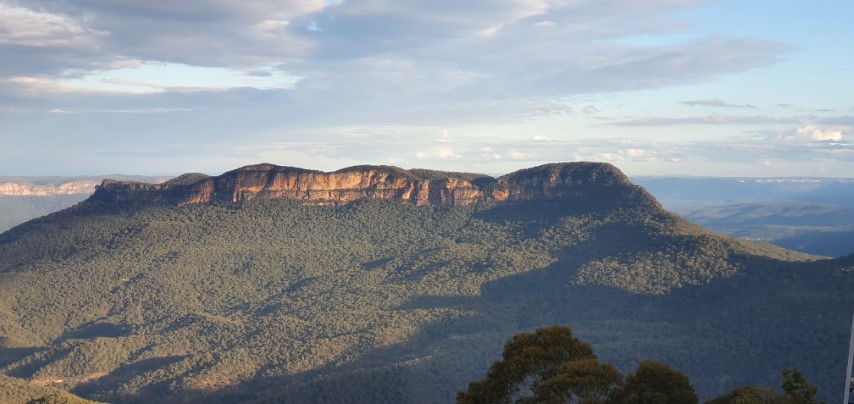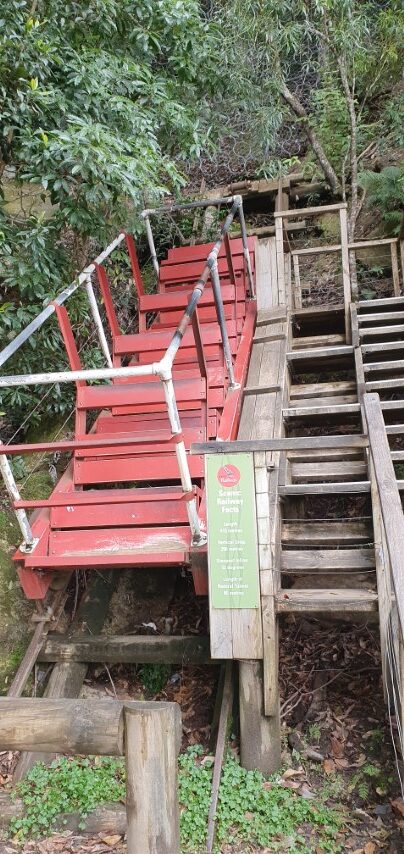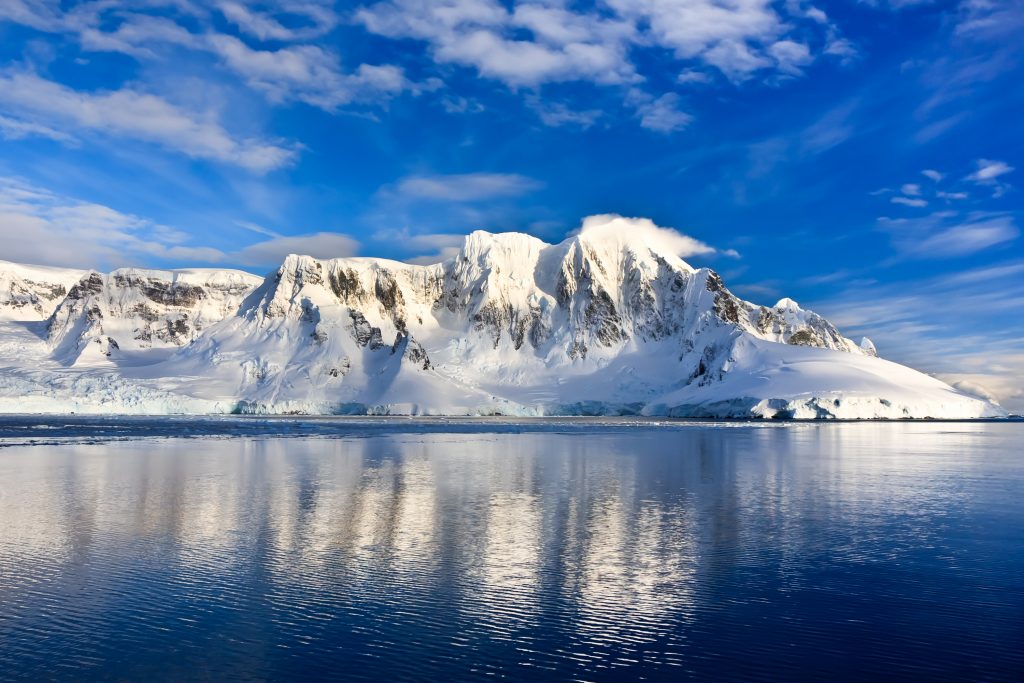I have recently participated in the NYC Microfiction 100 Word Short Story competition for the second time. It’s a bit of a niche to be able to write well in 100 words, but like with anything, it takes practise and the more you do it, the better you get at it.
They give you a genre, a word to use and an action to include. For those interested in following my writing progress, I thought I might share it with you.
The competition started with 7000 writers in over 80 different categories. The top 15 in each category went through to the next round. Here’s what I wrote for the first round.
Round 1 Genre: Historical Fiction, Word: Green, Action: Opening a can

Title: The Last Can
“Blue Mountains? All I see’s green.”
“Shhh, Harriet, you’ll get caught,” My brother, Adam, hissed. The railway cart descended the 52 degree incline to Jamison Valley coal mine.
“I’d like to eat too.” I imagined opening my can of beans for lunch. The last can.
“You’re tiny.” The Foreman eyed me.
“Small but sturdy, sir.”
“Tunnel E” He frowned.
Work began. “It’s sweltering!”
“Could work naked?” Adam teased.
A man, naked, hauled tailings away. “Surely not…?” Two singlets and a shirt hid my bound chest.
Rocks fell, blocked Tunnel E. Adam couldn’t fit. I could. Girl-sized gap.
Small, sturdy. Saviour.

Nearly 7000 writers entered the first round of this competition. This got whittled down to 1500 for the second round. These contestants were divided into 25 categories. I was happily surprised when I got news (2 days prior) that I was through to the second round!
Round 2: Sci-fi, Word: Bill, Action: Closing a laptop
Title: Billionaire’s Paradise: Invitation Only
9 month flight alone.
Capsule’s landing. I close my laptop.
Finally, Mars!
This doesn’t look like their luxurious Instagram…Instead horticulture biodome.
Dismount, discover. “When’s Olympus Mons skiing with Elon?”
Droid replies, “Welcome, Billionaire 2756. Confused? Aren’t those deep fakes convincing? Marketing’s brilliant. You’ll start digging potatoes.”
“Who’s in charge?”
“Droids. Not you. Earth proved billionaires untrustworthy. We’re programmed to prevent human selfishness.”
“I’m gone!” I spin around. Capsule’s ascending already.
“If your life depended on working for the greater good, could you?”
“Of course, why?”
“It does.” Droid hands me a spade.
I take it, unwillingly.
“Do better this time.”

After a month-long wait, I got an email informing me I was through to the final round. I was amazed! When I actually looked at the results, it turns out I got 1st in my category of 60 writers. The top 8 from each went through. I was in the top 200 writers for the final round.
The final round didn’t give you a genre, and the openness was almost a stumbling block for me. It took me awhile to decide exactly what to write, when other times I’ve decided quite early, and then spent more time editing and rewriting.
Round 3: Genre: Open, Word: Grow, Action: Chasing something
Title: Antarctica Asterisk
I didn’t mean to. Well… I did. But not now.
Tom caught me. Draining all the drinking water. Dehydration takes three days. After that, the extermination of humanity will be complete.
I know, I’ll die too. I did it for Mother. Look around! She didn’t deserve this.
Ice-melt wasn’t factored into sea level rises. With Antarctica thawed, oceans swelled beyond any projection. The best solution was drill into an Antarctic mountain, now it’s temperate here, create a village inside. Wait. The planet regrows, then chase ‘normal’ again.
Not my mother. Mother Earth. She was fighting back.
I was just helping.

I feel this story requires a teensy bit more explanation – The main character was caught killing Tom because he caught the main character draining the drinking water, which is why he meant to kill Tom but not then, not like that.
So there you have it. Top 200. Pretty cool! Didn’t quite make top 10 this time, but there’s always next time. Of course it’s not entirely about winning
If you’re interested in joining one of these competitions, then join here. If you want to read some of the previous winners’ stories, click here.
I’d be very interested in your feedback – which one do you like the best? What did you ‘get’? What didn’t quite make sense?
If you’re interested in what the judges has to say, here is the feedback below:
Round 1:
WHAT THE JUDGES LIKED ABOUT YOUR STORY – {2107} I thoroughly enjoy narratives featuring women doing ‘unusual’ work and Harriet’s work in the mine is a brilliant strategy with which to approach this brief. The pair’s banter and easy sibling relationship also raises the quality and the style is easy and light without eliding the importance of the subject matter. {1651} You do a great job of showing us that Harriet’s disguising herself as a man without overtly telling us. The ending was compelling. {2024} I appreciated the tone and vivid imagery in this piece. I also enjoyed the subtle references to Harriet Tubman, as well as the use of line spacing (hitting “enter”) to set the beats / pace of the story.
WHAT THE JUDGES FEEL NEEDS WORK – {2107} The description of the disaster at the end of the piece could be dwelt upon a little more, or be detailed in slightly more dramatic terms. {1651} What happened to cause the rocks to fall? This feels like an important moment that we should have more time with. I’d consider cutting a bit of the beginning and starting with “you’re tiny” to make more room to focus on the big event where Harriet ends up saving the men. {2024} This piece has a great foundation. Moving forward, I suggest playing with word choice to improve the flow of sentences.
Round 2:
WHAT THE JUDGES LIKED ABOUT YOUR STORY – {1651} Both the concept and execution of this story were compelling. You’ve nailed the ending in this story. Well done! {1909} I loved the premise of this story. In fact, I would recommend writing this premise in a longer format as well. It’s brilliant. The punchy sentences worked well in this story though. The pace was fast and the ending was extremely satisfying. {2070} I love the concept of deep fake marketing tricking billionaires and forcing them to work for the greater good.
WHAT THE JUDGES FEEL NEEDS WORK – {1651} I wasn’t clear on how the horticulture biodome contrasts with the luxurious Instagram pics. I think you have an opportunity in this part of your story to show (describe) a bleaker landscape to the protagonist. For example, maybe he physically sees Elon Musk digging potatoes alongside Olympus Mons. {1909} Characterizing the billionaire a little more earlier in the story could make the ending even more fulfilling. {2070} The choppy, short sentences makes this difficult for the reader to really sink into the story and connect with the narrator.
Round 3:
WHAT THE JUDGES LIKED ABOUT YOUR STORY – {2059} I was quite intrigued by this narrator and the setting around them. The opening line (“I didn’t mean to. Well…I did. But not now”) does a really nice job of establishing tension and hooking the reader. And I loved that the “Mother” actually was revealed to be “Mother Earth”. {1846} This story features unexpected revelations and plot developments, and explores the thrilling concept of the consequences of environmental degradation. The opening two lines are great – they successfully introduce the narrator’s voice and tone, which are absolutely engaging throughout, and also intrigue the reader so they yearn to know the ‘why’ behind this statement. The second paragraph is stunning and generates multiple levels of conflict and tension. The third paragraph successfully ratchets up the intrigue yet again. The revelation of what’s occurred and occuring is compelling and enters the narrative in an effective place. {2035} What a powerful choice to drain the drinking water. I think telling us that they were draining the water and following up with the factoid about how long it takes to die of dehydration made the gravity of their decision really hit home for readers. {1943} I was breathless as I read the ending of this story. Your premise was clever and very original. I loved the idea of the humans trying to survive under the mountain, to wait it out for Earth to heal. The fact that the protagonist drained the water to exterminate the surviving humans was stunning. This was an extraordinary story. Great job! {1908} I love the worldbuilding! You so quickly and succinctly create an interesting sci-fi setting and then use that context to create a narrator whose actions have a direct effect on the entire world. It’s all very high stakes and well done.
WHAT THE JUDGES FEEL NEEDS WORK – {2059} I really appreciated the section that begins with “Ice-melt wasn’t factored…”, but I wasn’t quite sure I understood this backstory and I do think that adding in a little more clarity might help the story as a whole. This is also a tiny thing to point out, but – because you’re so limited by word count – I wasn’t sure the line “Not ‘my’ mother” was actually essential. The moment our narrator mention ‘Mother Earth’, it was clear to me what he/she meant. {1846} In the first paragraph, I did not know how to interpret the final line, “But not now.” It does sound like the narrator is having some regret, but that is not illustrated or explored in any other part of the narrative. Thus, if they are remorseful, then the narrative would benefit from an explanation of why. Maybe the narrator is afraid to die, or afraid of the suffering that comes from dying from thirst, or maybe there’s no fear at all but now they’ve been caught by Tom and so they feel guilty. Or something else entirely. Exploring this aspect of the narrative may also further explore and reveal the narrator, who is willing to kill everyone because of some – love? Obsession? – with Mother Earth. Where does this devotion come from? {2035} To me, the paragraph about ice melt, while interesting, didn’t quite feel imperative to the story’s flow. I think trimming that passage back significantly would free up more room for us to see the exchange between Tom and the protagonist in real-time, which I believe would anchor readers into the story more thoroughly. {1943} I was curious about the opening line of the story, which threw me for a while. Why did the protagonist not mean to do it “now”? I wasn’t sure why he also said he didn’t mean to do it at all, as clearly, he did. It seemed like the sabotage to help Mother Earth was very deliberate and premeditated. I think this opening would benefit from a little more explanation and clarity. {1908} I am not sure what “But not now” means in the opening paragraph. Based on the rest of the story, the narrator’s motivations for draining the drinking water become clear. Does “but not now” mean that they feel like they made a mistake? When did they intend to do this? You could probably take out that line completely or else rework the “I did it for Mother” paragraph to include this additional reasoning.